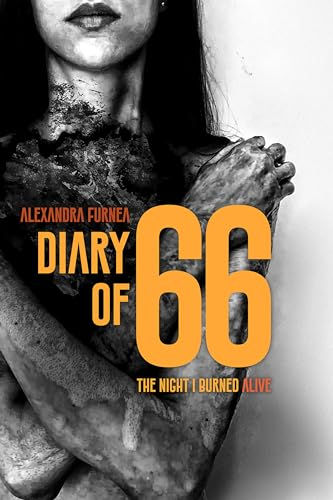"Diary of 66 – A Harrowing Testimony of Survival and Injustice"
- Catalina Cirnatu
- Apr 18, 2025
- 4 min read
I dare say, that Romanian books are not widely present on my to-be-read (or more commonly used, TBR) shelf, quite the contrary, their presence is non-existent and I’m pretty sure that most of you are in a homogenous situation. Romanian books are either too old and hard to understand for us to read on our own initiative or are usually overshadowed by the worldwide bestsellers seen every day on social media, where lots of people our age try them and seem to really enjoy them. I generally end up searching for books online and therefore end up reading the same ones that other thousands of readers do but, as we’ve already become accustomed to thanks to our governors and heads of the state, there can always be an exception from the rule.
I for once read maybe the first book written by a Romanian author since I finished the eighth grade (a feat that I should definitely not be proud of) and it’s called Diary of 66: The Night I Burned Alive, written by Alexandra Furnea, and it completely dumbfounded me in a way, I’d almost forgotten a book could.
First things first, what’s this book about? I’m pretty sure not many of you have heard of it. Well, this novel, an autobiography, revolves around the tragic experiences that Alexandra endured, after surviving the Colectiv fire tragedy. This misfortune, if you don’t remember, or were just too young at that time to watch the news, occurred on 30th October 2015, and is considered to be the most dreadful night since the 1989 revolution. On that horrible night, burned alive, smoke poisoned, or simply trampled (to be mentioned that only one exit door was open at that time) were about 27 people. The other 186 wounded victims, including our main character and also author of this book, Alexandra, were left to be eaten by bacteria and completely anguished by the doctors’ incompetence, and so 34 others perished in the dreadful hospitals.
Now that we are more familiar with the context, we can go back to reviewing this novel. Diary of 66 is the memoir of one woman’s triumph over tragedy, and what followed next, injustice. In the two months spent in Romanian hospitals, Alexandra’s mental state and also physical health deteriorated so much due to the unprepared, deadpan doctors and impotent politicians who have ruled this country for over 30 years and led the medical system to its despicable condition stating: “Since I've been hospitalized here, I've learned that the patient is, most of the time, a helpless witness to the observations exchanged between doctors and staff. There is no time or interest for dialogue. If you cry, you don’t find comfort; instead, you are scolded, accused of being weak.”
The readers are very optimistic at the end of the second chapter though, due to her discharge from the Hospital of No Healing, only to find out 100 pages later, that when Alexandra received her medical letter (a medical letter is a document where a patient is provided details about its medical condition) that her discharge was mainly due to the fact that her body was so infected with bacteria, tons of it, that the chief doctors better would rather have left her to die home and accuse her family of incompetence and negligence, than admit that they’ve been lying about her condition all the time, stating daily: ”She has no infections, miss. She’s too weak”. If she was so infected though, you may ask, how on earth did she not die? Well, despite going to regular consultations, where most of her wounds were almost overlooked, one nurse, however, had the determination and also attention to come daily to her home and treat her the way she should’ve been. Therefore, someone who was half prepared but with a big heart and dedication to be admired, cured a patient who had almost lost all hope and will to live.
The story takes a positive turn when Alexandra makes the final decision to go to a clinic in Germany, a place where she should’ve gone months earlier. This decision was her salvation, because of the treatment and conditions she was offered there. You can’t imagine your satisfaction and relief as a reader when you reach this part. After all the hardships she had gone through, our main character did not lose herself and triumphed even though all the odds were against her. Because of the wrong decisions made by Romanian doctors regarding her plagues, however, she had to follow a lifelong treatment, but she could almost go back to her normal life. It’s not the best ending, by any means but it ends on a hopeful note that, even though, our country’s system seems devoid of humanity, there are still dedicated people somewhere, who truly care about their patients, offering them comfort even in the darkest of times, when it seems that everyone is deaf to their problems.
I highly believe that we should all be more aware of these problems. We are all passionate activists in protecting the environment because that’s what we hear on the news and social media, but that’s how we overlook problems that are just under our noses. I’m not stating that global warming is a problem to be overlooked, but that we should be more aware of the issues that affect us most directly because whether you like it or not at some point we will all end up in a hospital and we don’t want to be treated the way the Colectiv survivors were, do we?
Branka Turcin 10A






Comments